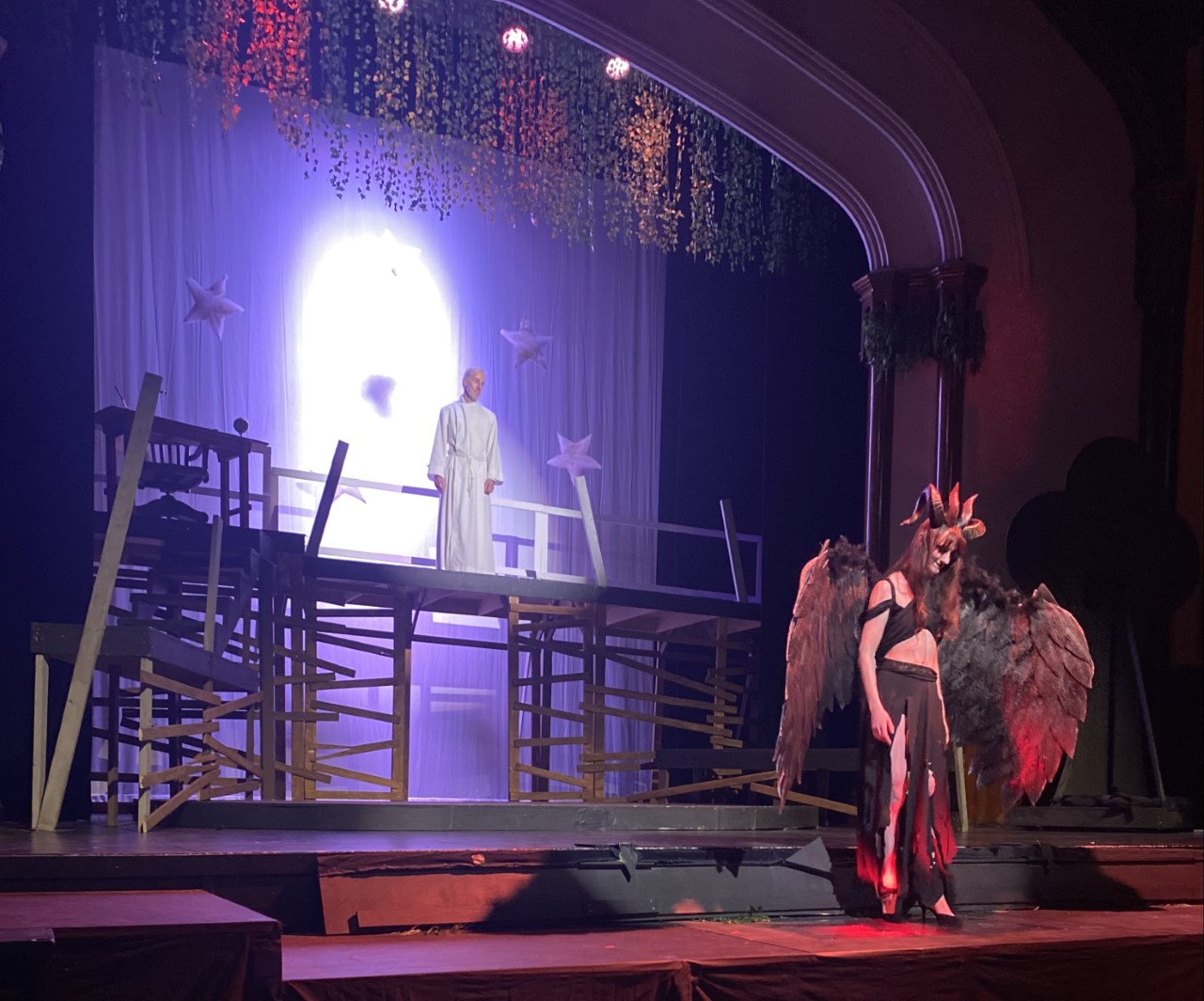Erin Shields wrote the classic Milton epic for the stage and reimagined it through a modern and feminist lens.
Sinners and Saints: UNB Theatre’s Paradise Lost

Erin Shields wrote the classic Milton epic for the stage and reimagined it through a modern and feminist lens. Len Falkenstien took this reimagined classic and directed a talented cast in Theatre UNB’s first production of 2023, Paradise Lost. In the production’s program, Falkenstien wrote of Shields’ “subjecting [Paradise Lost] to a much called for critique and re-evaluation based on how our cultural values have changed over the centuries” naming the modern take as “profound, moving, hilarious, cutting and frightening.”
The enigmatic Satan, played by the striking Camryn Gaudet, embodies the feminist revision playwright Erin Shields intended. Placing the powerful and slighted Satan into a woman’s body offers her hurting, vengeful character to be viewed in the light of female rage. The divine ever presence of God is rightfully cast as UNB’s English and Drama professor John Ball, who embodies the sensible and humanized character. This version of Paradise Lost plays with complex topics of good and evil, specifically through an unforgiving God and an endearing Satan. The angels in the play are also portrayed as humanlike, claiming to imagine what it would be like to want revenge when that’s what they clearly feel. There is a satirical undertone in the scenes of the angels. They periodically proclaimed together in a chorus-like chant, “Wiser all his ways,” in the middle of a scene, eliciting laughter.
Gaudet’s Satan is the star of the show. In this image of Satan, she is hurt by her banishment from Heaven revealing a motive for sin and for her luring Eve to the Forbidden fruit. Satan is at times depicted as evil and witty, but other times played through strong depictions of anger, and consequent despair. The most jarring of her speeches is the ending, where her heartbreak and frustrations are displayed through a lengthy, emotionally charged monologue, where she condemns God with the responsibility for all the sins yet to come following Adam and Eve’s banishment from the Garden of Eden. She names horrors relevant to this current day, which exactly encompasses the reason for the much-needed revision of the classic Milton epic.
Multiple subplots fill the play with surrounding commentaries on the concept of good and evil. The feminist perspective is investigated further in the characters of Adam, played by Brandan McDougall, and Eve, played by Sarah Osier. Eve is intuitive and knowledgeable, yet is widely known as sinful. This is the primary example of the play’s larger comment on the misogynistic portrayals of women in classic literature and the correlation between knowledge and sin.
The duo of Michelle Allard and Finnley Boehm deserve special praise considering their dependable comedic relief. Playing angels Zephon and Ithuriel respectively, their chemistry is undeniable just as their talent is. The two also play the personified characters of Sin and Death, a mother and her teenage son. The character of Death a hungry teenage boy who whines to his mother, Sin, provides a strangely hilarious scene that speaks to the creativity and profundity of Erin Shields’ revision.
Keep in touch with our news & offers
Subscribe to Our Newsletter
Thank you for subscribing to the newsletter.
Oops. Something went wrong. Please try again later.






